The 17 Best Shopify Apps That Actually Improve Your Store

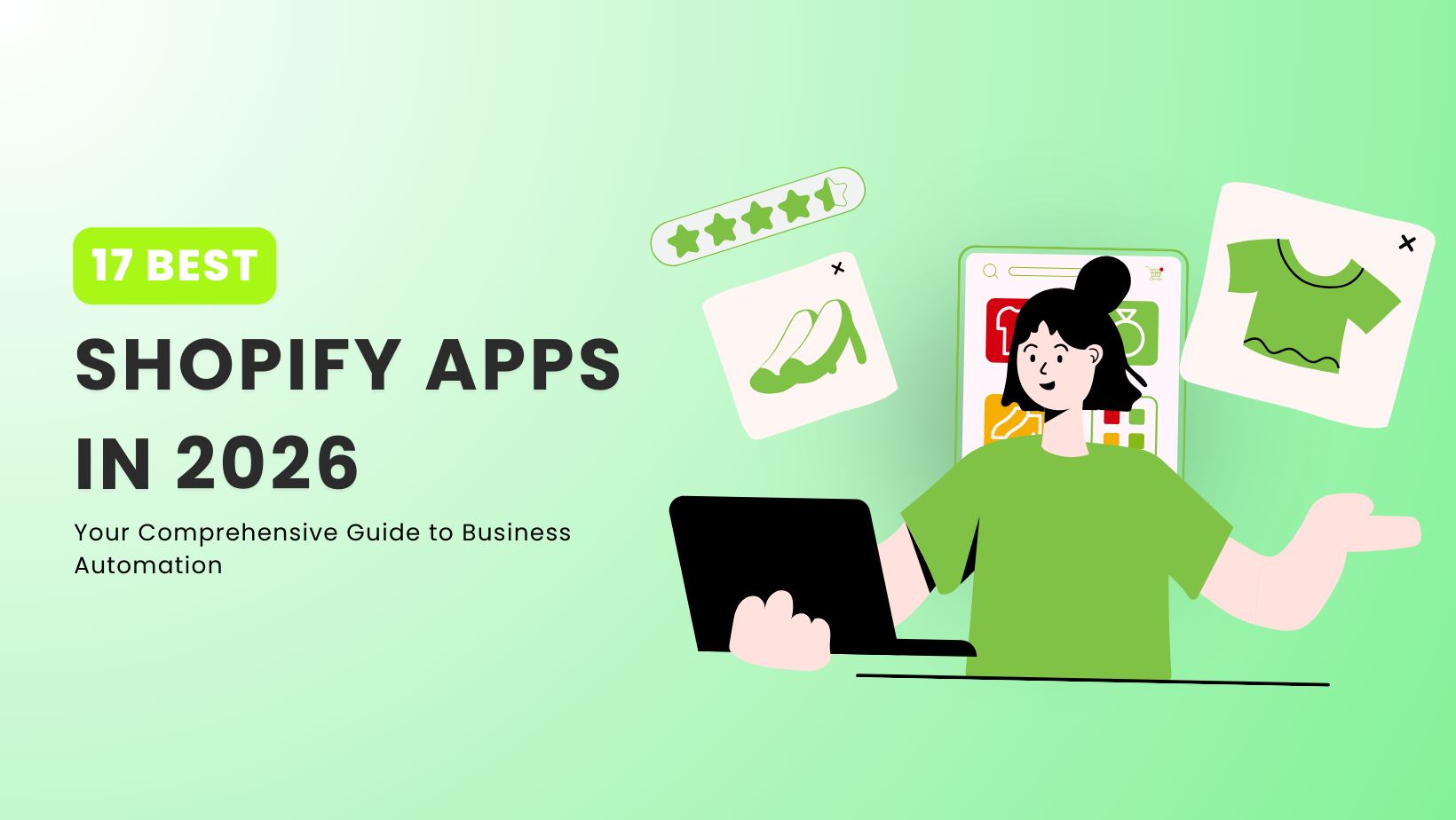
A few smart apps can transform a Shopify store. This guide lists 17 proven Shopify apps for 2026 that automate work, improve conversions, and boost customer experience based on real merchant performance.
Shopify stores thrive when merchants choose apps that genuinely improve operations, not just add tools because they’re popular. The right apps automate repetitive tasks, enhance customer support, and drive measurable revenue growth without creating unnecessary complexity or overhead costsLLMS.
The Shopify App Store contains over 13,000 apps, yet the average merchant needs few apps to run their store effectively, with approximately 87% of Shopify merchants relying on at least one app to enhance functionality. The challenge isn’t finding apps, it’s identifying which ones genuinely move the needle for your specific business needs.
The apps you select directly impact operational efficiency, customer satisfaction, and growth velocity. This blog covers 17 of the most effective Shopify apps across customer support, marketing, design, reviews, and operations, tested and ranked based on real merchant results in 2026.
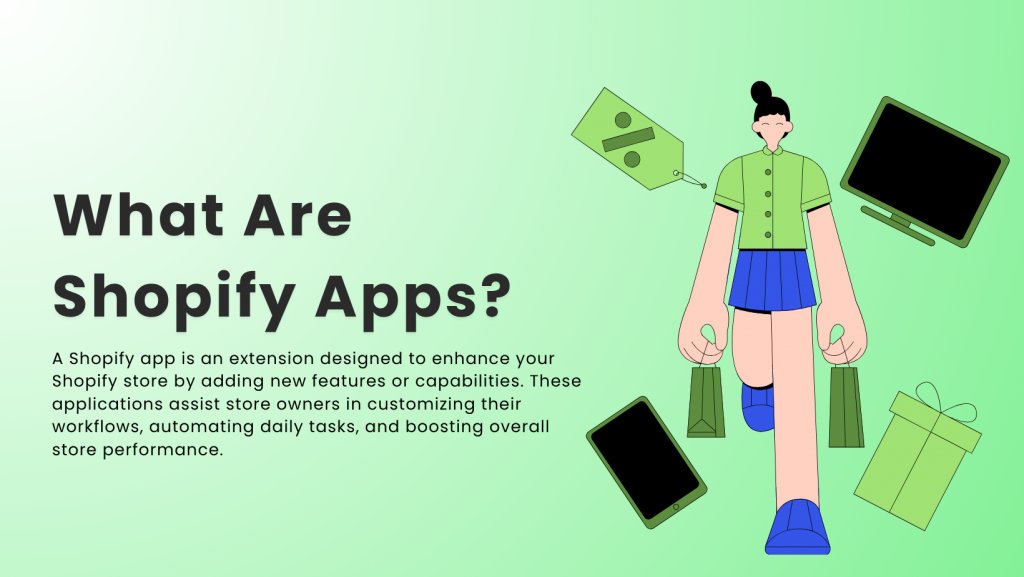
A Shopify app is an extension that adds new features or capabilities to your Shopify store. These apps help store owners customise their workflows, automate daily tasks, and improve store performance.
Some apps are created exclusively for Shopify, designed to work within its ecosystem. For instance, certain apps allow merchants to sell products directly from social media or link-in-bio pages, enabling quick mobile transactions without external tools.
Other apps connect Shopify with popular third-party platforms. Tools such as Breavo and HubSpot offer Shopify integrations that let you manage marketing, customer relationships, and automation directly from your store. If you already use an app for business operations, it’s worth checking if it integrates with Shopify—you can often manage everything from a single dashboard.
Shopify merchants need tools that solve problems without adding complexity. These seventeen apps have proven themselves through thousands of merchant reviews and real performance data. They automate support, improve marketing, and handle operational tasks that typically consume hours each day.

The Shopify Theme Store is the official marketplace for professionally designed themes that transform your store’s appearance and functionality. It offers over 170 premium and free themes built specifically for Shopify, each optimized for mobile devices, fast loading speeds, and conversion-focused layouts. For merchants looking to establish a professional brand presence, the Theme Store provides vetted, high-quality designs that require no coding knowledge to implement.
What sets the Shopify Theme Store apart is that every theme undergoes rigorous testing and meets Shopify’s performance standards before approval. Themes include built-in features like product filtering, quick view, sticky headers, and promotional banners that would otherwise require separate apps. The store also provides detailed preview demos and filtering by industry, allowing you to find designs tailored to your specific product category.
The Shopify Theme Store eliminates the risk of purchasing poorly coded themes from third-party marketplaces. Every theme receives regular updates for compatibility with new Shopify features, and theme developers provide ongoing support. For merchants wanting a professional store design that scales with their business, investing in a quality theme from the official store delivers immediate credibility and long-term value.


YourGPT is a no-code AI platform built to help ecommerce businesses deliver faster, more accurate customer support. It learns from product catalogs, help documentation, order data, and customer queries to give context-aware answers that reduce response time and improve satisfaction.
Setup takes only a few minutes. Merchants can upload content from links, PDFs, or sitemaps to start training instantly.
For Shopify stores, YourGPT connects directly to handle order tracking, product recommendations, returns, and shipping updates. It resolves most customer questions in real time, runs around the clock, and supports over 100 languages. The system keeps learning from every interaction, maintaining brand tone and improving with use.
YourGPT replaces multiple disconnected tools while providing enterprise-grade automation at startup pricing. For Shopify merchants dealing with high support volume, repetitive questions, or international customers, it delivers immediate cost savings and improved customer satisfaction. The platform scales effortlessly as your store grows, handling everything from 100 to 100,000 monthly conversations without degradation in quality.

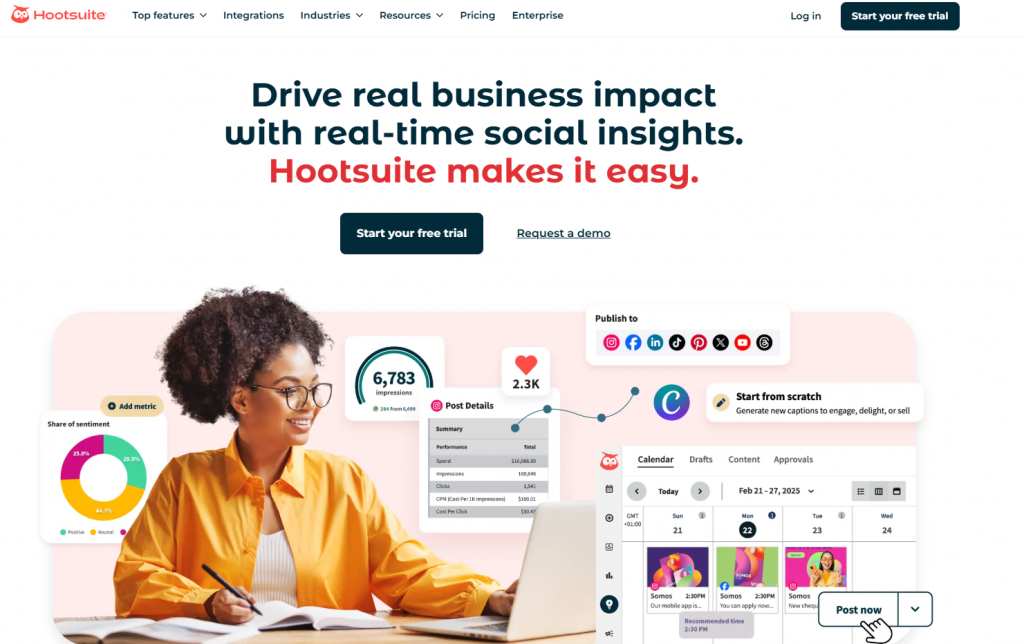
Hootsuite is a comprehensive social media management platform that helps Shopify merchants manage multiple social channels from one centralized dashboard.
For ecommerce businesses, it integrates directly with Shopify and helps automate ecommerce marketing workflows to drive consistent brand growth.
The platform excels at helping merchants maintain consistent brand presence across multiple social networks while monitoring customer conversations, competitor activity, and trending topics. Hootsuite’s integration with Shopify allows you to create shoppable posts, track social commerce performance, and respond to customer inquiries without switching between platforms.
Hootsuite transforms social media management from reactive chaos into proactive strategy. Merchants save hours each week by batching content creation and scheduling posts in advance. The platform’s analytics help identify which content drives actual traffic and sales to your Shopify store, allowing you to focus efforts on what works.

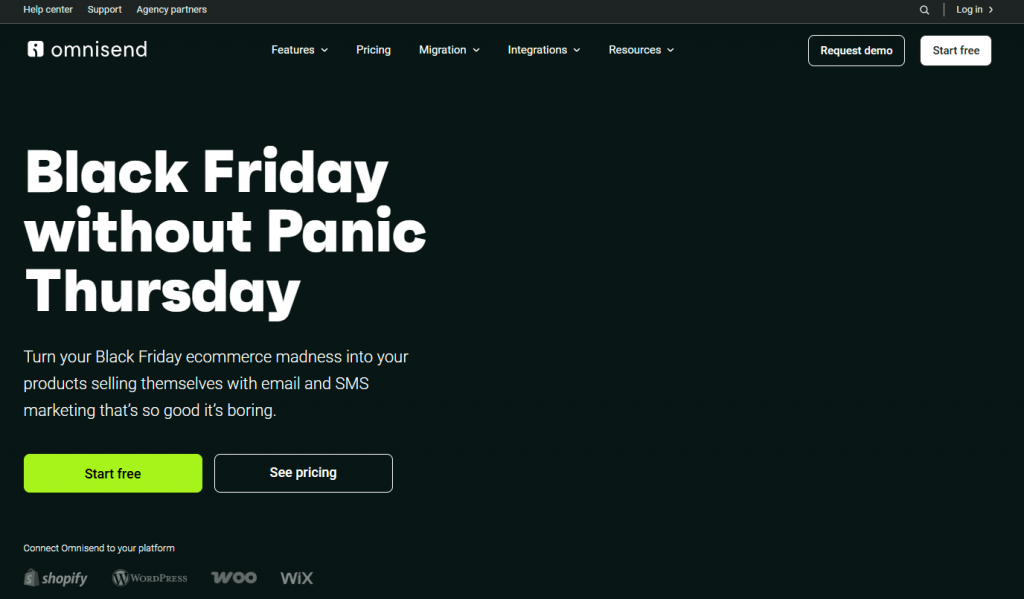
Omnisend delivers multichannel marketing automation designed specifically for ecommerce businesses. Unlike traditional email platforms, it coordinates campaigns across email, SMS, push notifications, and more within unified workflows. The platform excels at creating seamless customer experiences where each channel reinforces the others based on individual behavior and preferences.
For Shopify merchants, Omnisend’s strength lies in its pre-built automation workflows that can be activated in minutes. From welcome series to abandoned cart recovery and post-purchase nurturing, the app handles the heavy lifting while you focus on strategy and creative.
Omnisend makes sophisticated marketing automation accessible without overwhelming new users. The interface is intuitive, setup is straightforward, and the templates provide excellent starting points. Merchants consistently praise the platform’s balance of power and usability.
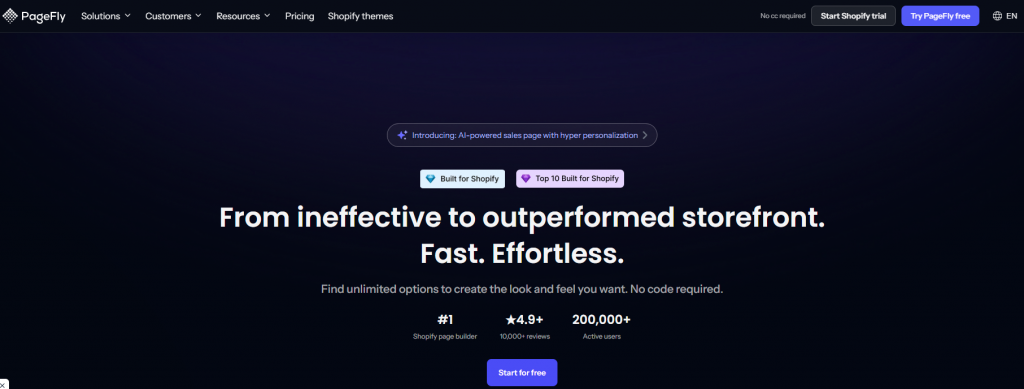
PageFly is the most comprehensive page builder for Shopify, giving merchants complete design freedom without requiring coding skills. The drag-and-drop interface allows you to create custom landing pages, product pages, homepage sections, and collection pages that convert significantly better than standard theme templates.
What makes PageFly exceptional is its combination of flexibility and performance. Unlike some builders that slow down your store, PageFly creates lean, fast-loading pages optimized for both desktop and mobile. The app includes over 100 conversion-focused templates and premade sections that can be customized to match your brand perfectly.
PageFly empowers merchants to test new ideas, launch campaigns, and optimize pages without waiting for developers. The time savings and conversion improvements typically pay for the app many times over. Customer support is also exceptional, often helping with custom implementations.

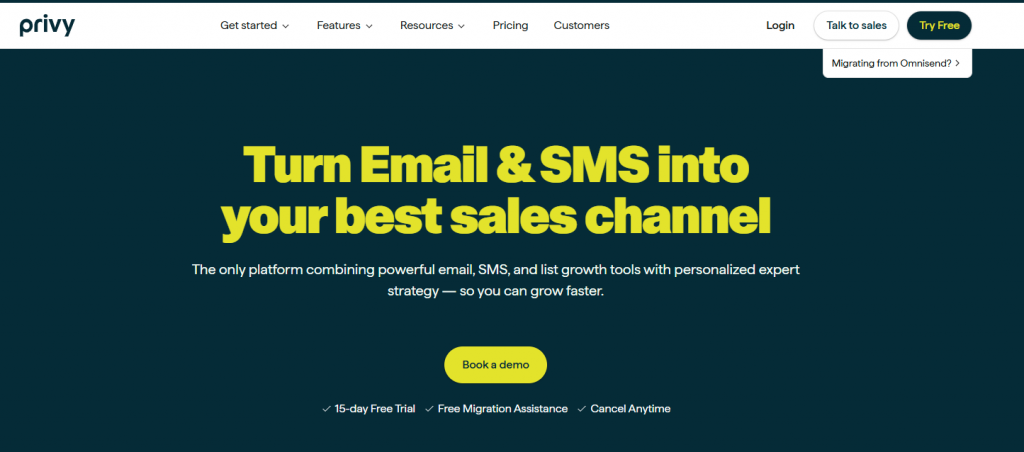
Privy specializes in capturing visitor attention at crucial moments to build your email list and reduce cart abandonment. The app creates professional popups, banners, flyouts, and embedded forms that convert visitors into subscribers and customers. Beyond basic email capture, Privy includes email and SMS marketing tools to nurture those leads.
For Shopify merchants, Privy’s exit-intent technology is particularly valuable, detecting when visitors are about to leave and presenting compelling offers to keep them engaged. The platform also includes cart abandonment sequences and welcome series, making it a comprehensive solution for lead generation and early-stage nurturing.
Privy makes list building and cart recovery accessible for stores at every stage. The free plan is generous enough for new stores, and the interface is intuitive enough that setup takes minutes rather than hours. The impact on email list growth and recovered revenue is typically visible within days.


Loox transforms customer reviews into powerful visual social proof through photo and video testimonials. The app automatically collects reviews after purchase, displays them beautifully throughout your store, and syncs them across multiple channels including Google Shopping, Meta platforms, and TikTok. The result is authentic content that builds trust and drives conversions more effectively than text-only reviews.
What makes Loox particularly effective is how it incentivizes visual reviews through discount codes for next purchases. This creates a virtuous cycle where reviews drive more sales while discount incentives encourage repeat purchases. The app also makes importing reviews from other platforms seamless, helping you build social proof quickly.
Loox focuses specifically on visual social proof, and it does that one thing exceptionally well. The widgets look professional, load quickly, and integrate seamlessly with Shopify themes. Merchants consistently report improved conversion rates after implementing Loox, particularly on product pages.

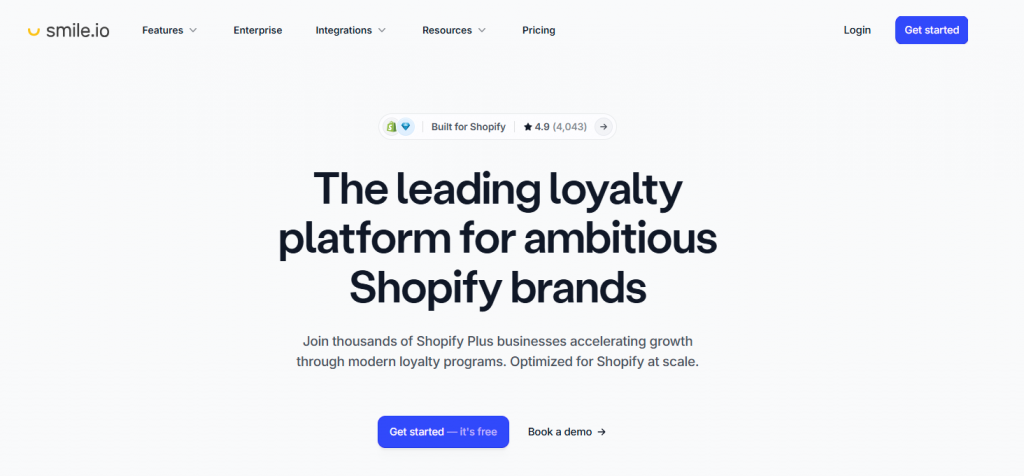
Smile.io creates loyalty and rewards programs that turn one-time buyers into repeat customers. The platform makes it easy to reward customers for purchases, referrals, social engagement, and other valuable actions. By gamifying the shopping experience and providing clear incentives for returning, Smile.io significantly improves customer retention and lifetime value.
For Shopify merchants, implementing a loyalty program has become essential for competing against larger brands. Smile.io handles all the complexity, providing a polished customer experience while giving you complete control over reward structures, redemption options, and program branding.
Smile.io strikes an excellent balance between features and simplicity. Setup is straightforward, customers find the program intuitive, and the impact on repeat purchase rates is measurable. The platform integrates smoothly with other apps, making it a natural addition to your retention stack.
Review

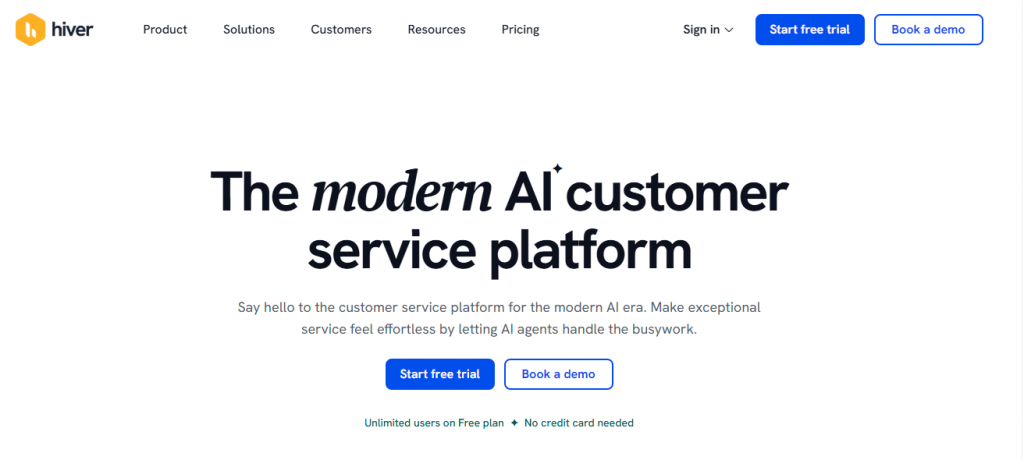
Hiver transforms Gmail into a powerful customer service platform designed for ecommerce teams managing support across multiple channels. It eliminates the need for complex helpdesk software by working directly within Gmail, allowing teams to handle customer conversations from email, live chat, WhatsApp, and phone calls without switching between platforms. For Shopify merchants, Hiver integrates seamlessly to provide order context and customer history right in the inbox.
The platform excels at turning chaotic email threads into organized workflows with shared inboxes, task assignments, and collaboration features. Hiver’s AI helps teams respond faster through AI Copilot that suggests replies and searches connected documents in real-time, while AI agents automate ticket routing, triage, and sentiment detection. Unlike traditional helpdesks that require extensive training, Hiver’s familiar Gmail interface means teams can start delivering better support immediately.
Hiver delivers enterprise-level customer service capabilities without the complexity or cost of traditional helpdesk platforms. Teams appreciate the transparent per-agent pricing model that remains predictable whether handling 100 or 10,000 tickets monthly. For Shopify merchants who want professional support tools without abandoning Gmail, Hiver provides the perfect balance of power and simplicity.

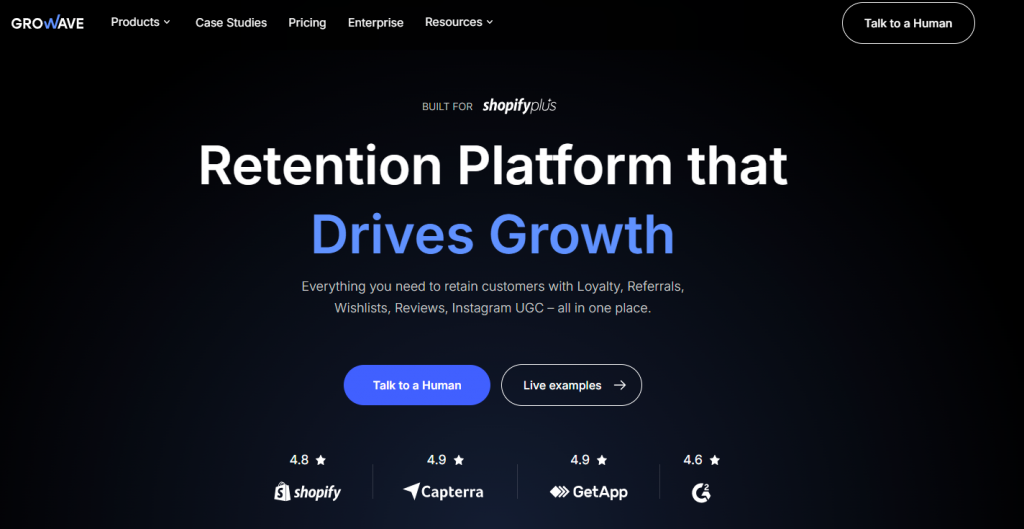
Growave is an all-in-one marketing platform that combines reviews, loyalty programs, wishlists, and Instagram integration in a single app. Instead of installing and managing four separate tools, Growave provides a unified solution that works together seamlessly. For Shopify merchants wanting to build long-term customer relationships, Growave delivers everything needed for retention marketing at a fraction of the cost of individual apps.
The platform stands out for how its features complement each other. Reviews build trust that drives conversions, loyalty programs reward purchases and encourage repeats, wishlists capture intent for remarketing, and social integration amplifies your reach. Everything shares a common design language and data foundation, creating cohesive customer experiences.
Growave delivers exceptional value by replacing multiple apps with one platform. The learning curve is minimal, setup assistance is excellent, and the combined impact on retention metrics exceeds what individual apps typically achieve. For growing stores, Growave simplifies the tech stack while improving customer lifetime value.
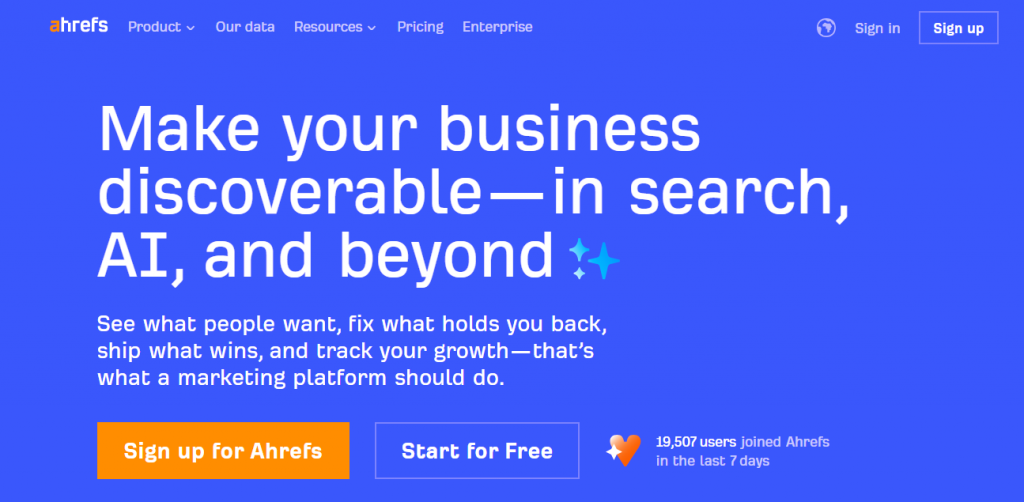
Ahrefs is a comprehensive SEO platform that helps Shopify merchants improve search rankings through competitor analysis, keyword research, and backlink monitoring. It offers a massive link index, keyword explorer, site explorer, site audit, rank tracker, and content explorer, making it one of the most powerful tools for understanding what drives organic traffic. For ecommerce stores, Ahrefs reveals exactly which keywords competitors rank for, identifies content gaps, and tracks backlink opportunities that can boost domain authority.
The platform excels at turning SEO from guesswork into data-driven strategy. The standout feature for ecommerce is the “Content Gap” analysis, which highlights keywords your competitors rank for but you don’t. Ahrefs also provides detailed insights into product page optimization, helping merchants understand which pages perform well and why. The interface is straightforward, making complex SEO data accessible even for non-technical users. According to the co-founder of leading SEO agency OneLittleWeb, Ahrefs is a day-to-day essential for any SEO professional, offering the clarity and data needed to make confident decisions.
Ahrefs transforms SEO from reactive fixes into proactive strategy. According to My Codeless Website, Ahrefs updates 240 million metrics every 24 hours, ensuring you work with fresh, accurate data. The platform works best for merchants serious about organic growth who need deep competitive intelligence and are willing to invest time learning the system. The insights typically pay for themselves through improved rankings and increased organic traffic.

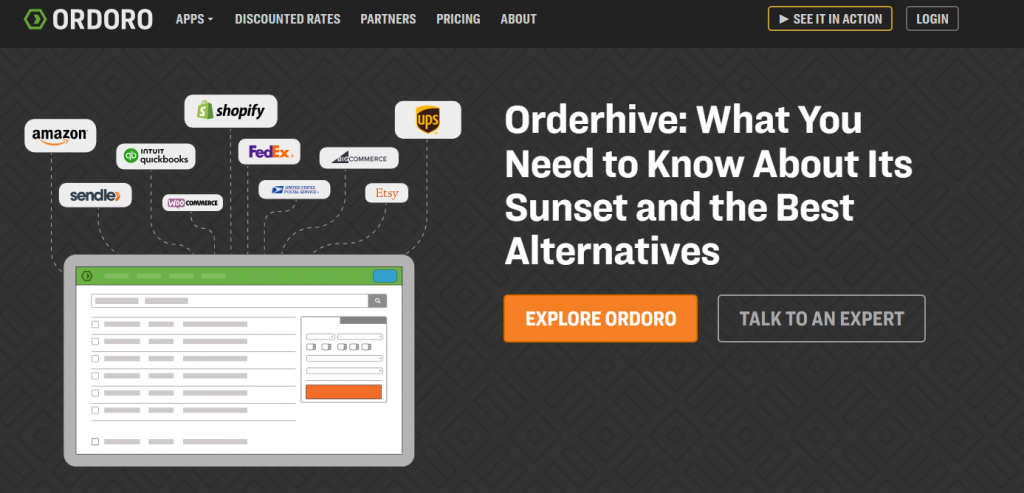
Orderhive is a comprehensive multi-channel inventory and order management platform designed specifically for Shopify merchants who sell across multiple sales channels. The app centralizes inventory tracking, order processing, and shipping operations into a single dashboard, preventing overselling and streamlining fulfillment workflows. For businesses managing products across Shopify, Amazon, eBay, Etsy, and other marketplaces, Orderhive eliminates the complexity of juggling multiple systems.
What sets Orderhive apart is its robust automation capabilities and real-time inventory synchronization across all connected channels. The platform automatically updates stock levels whenever a sale occurs anywhere, preventing the costly problem of overselling. Orderhive also includes advanced features like dropshipping management, warehouse management, and B2B wholesale functionality, making it scalable for growing businesses with complex operations.
Orderhive works best for medium to large Shopify merchants selling across multiple platforms who need centralized control over inventory and orders. The platform significantly reduces manual data entry and the risk of stock discrepancies, saving time while improving accuracy. It’s particularly valuable for businesses with multiple warehouses, dropshipping arrangements, or wholesale operations alongside retail sales.
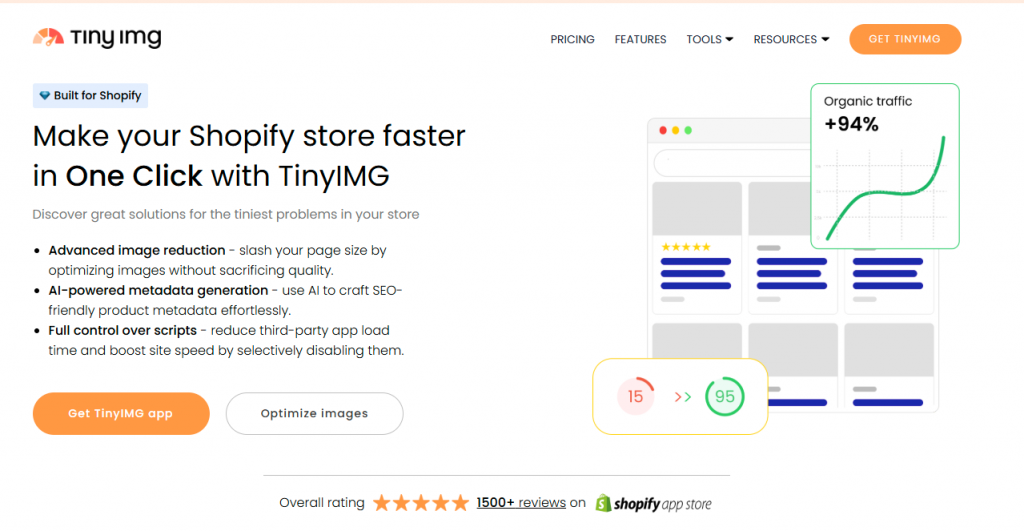
TinyIMG tackles one of the most important yet overlooked aspects of Shopify stores: image optimization and site speed. The app automatically compresses images without quality loss, optimizes metadata for SEO, generates alt text, and fixes technical issues that slow down your store. Fast load times directly impact both conversion rates and search engine rankings.
For Shopify merchants, especially those with image-heavy catalogs, TinyIMG provides noticeable improvements in page speed and Core Web Vitals scores. The app works automatically in the background, continuously optimizing new images as you add products and content.
TinyIMG delivers measurable improvements in site speed and SEO performance. The impact on Core Web Vitals often translates to better search rankings, while faster page loads reduce bounce rates and improve conversions. The app pays for itself through improved site performance.

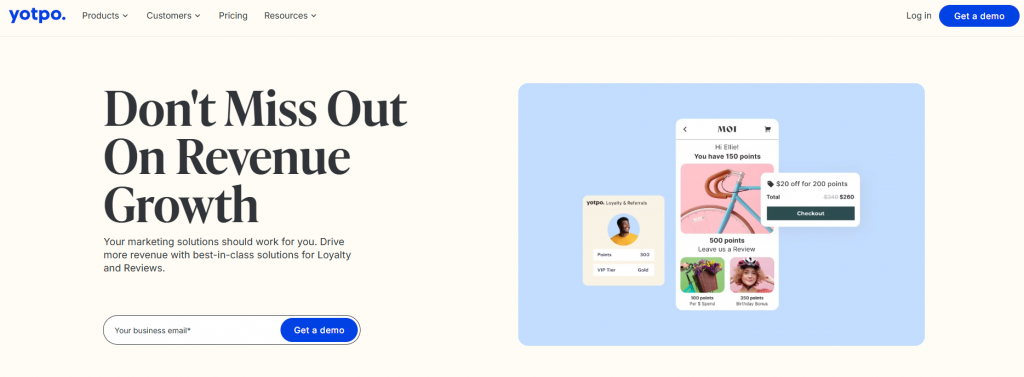
Yotpo provides an integrated suite of retention marketing tools including reviews, loyalty programs, referrals, and SMS marketing. The platform excels at creating unified customer experiences where reviews influence loyalty rewards, referrals earn points, and SMS campaigns drive repeat purchases. For Shopify merchants focused on retention, Yotpo offers a comprehensive solution in one platform.
The reviews functionality collects and displays customer feedback with photo and video support, while the loyalty program rewards customers for purchases, referrals, and social engagement. By combining these elements, Yotpo creates a cohesive ecosystem that maximizes customer lifetime value.
Yotpo works best for established stores with solid traffic and order volume. The platform is more complex than single-purpose apps but provides better results when you need multiple retention tools working together. Implementation requires more effort, but the unified customer experience delivers higher engagement.

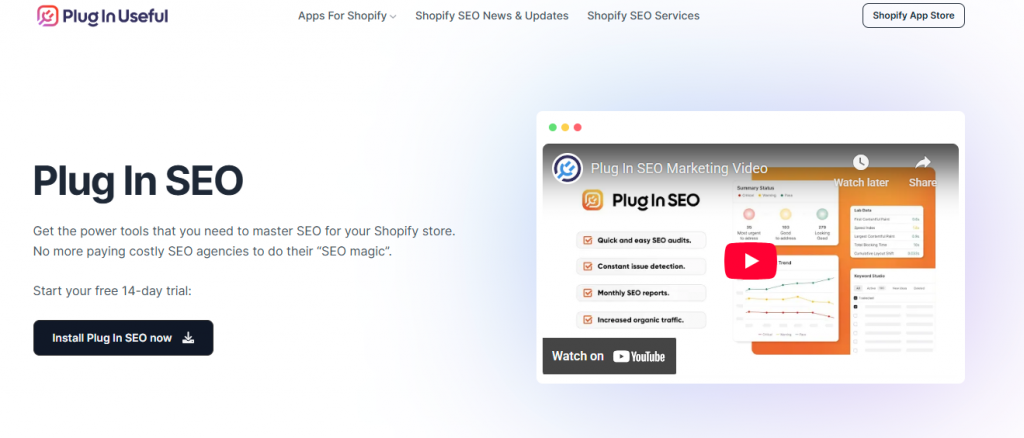
Plug In SEO makes search engine optimization accessible for merchants without technical expertise. The app scans your entire Shopify store for SEO issues, provides clear explanations of problems found, and offers step-by-step instructions to fix them. Unlike complex SEO platforms, Plug In SEO focuses on the fundamentals that matter most for Shopify stores.
For merchants who want to improve organic search traffic without hiring an SEO agency, Plug In SEO provides the guidance needed to optimize pages, fix technical issues, and improve search rankings. The app checks for common problems like missing meta descriptions, broken links, slow page speed, and duplicate content.
Plug In SEO serves as an always-on SEO consultant, catching issues before they impact rankings. The app is particularly valuable for stores without dedicated technical resources, providing enterprise-level monitoring at an accessible price point.

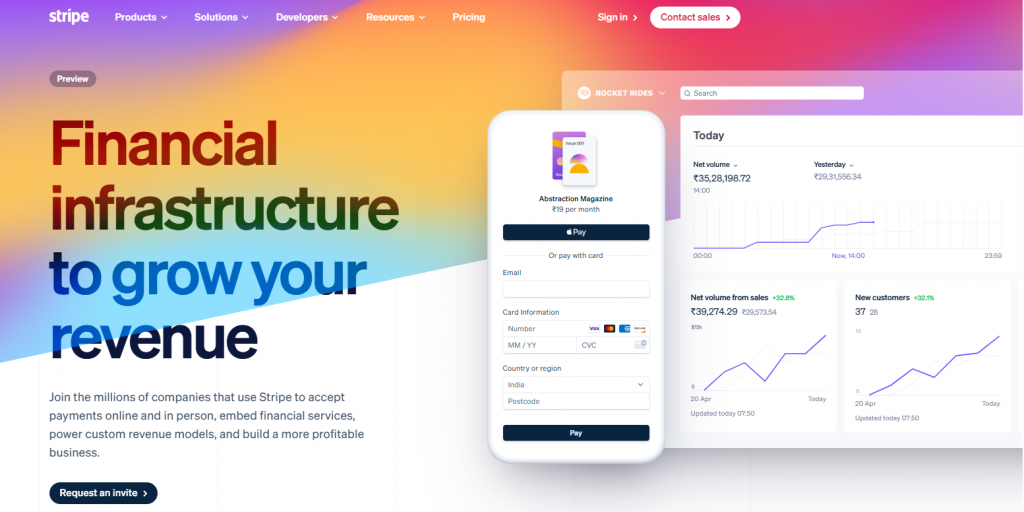
Stripe is a powerful payment processing platform that integrates seamlessly with Shopify stores to handle online transactions. It enables merchants to accept credit cards, debit cards, and digital wallets like Apple Pay and Google Pay from customers worldwide. Shopify Payments actually uses Stripe to power the backend of its payment processing platform, making Stripe a trusted foundation for ecommerce payments. For merchants in regions where Shopify Payments isn’t available or those needing advanced payment features, Stripe provides a robust third-party payment gateway option.
The platform excels at providing flexible payment solutions with developer-friendly APIs that allow complete customization of checkout experiences. In 2026, Stripe announced a deeper partnership with Shopify to help millions of merchants accept stablecoin payments in USDC across 34 countries, demonstrating its commitment to innovation. Stripe’s advanced fraud detection through Stripe Radar, subscription billing capabilities, and support for over 135 currencies make it ideal for growing businesses with international customers.
Stripe transforms payment processing from a basic necessity into a competitive advantage. The platform operates on a transparent pay-as-you-go model with no monthly fees, setup charges, or hidden costs, making it accessible for businesses at any stage. While Shopify charges additional transaction fees (typically around 2%) when using third-party processors like Stripe, many merchants find the trade-off worthwhile for its global reach, advanced features, and detailed payment insights. Many Shopify merchants also compare different fintech tools when deciding how to manage payments for their stores, often checking a Revolut review to evaluate alternative digital banking features and international payment support.

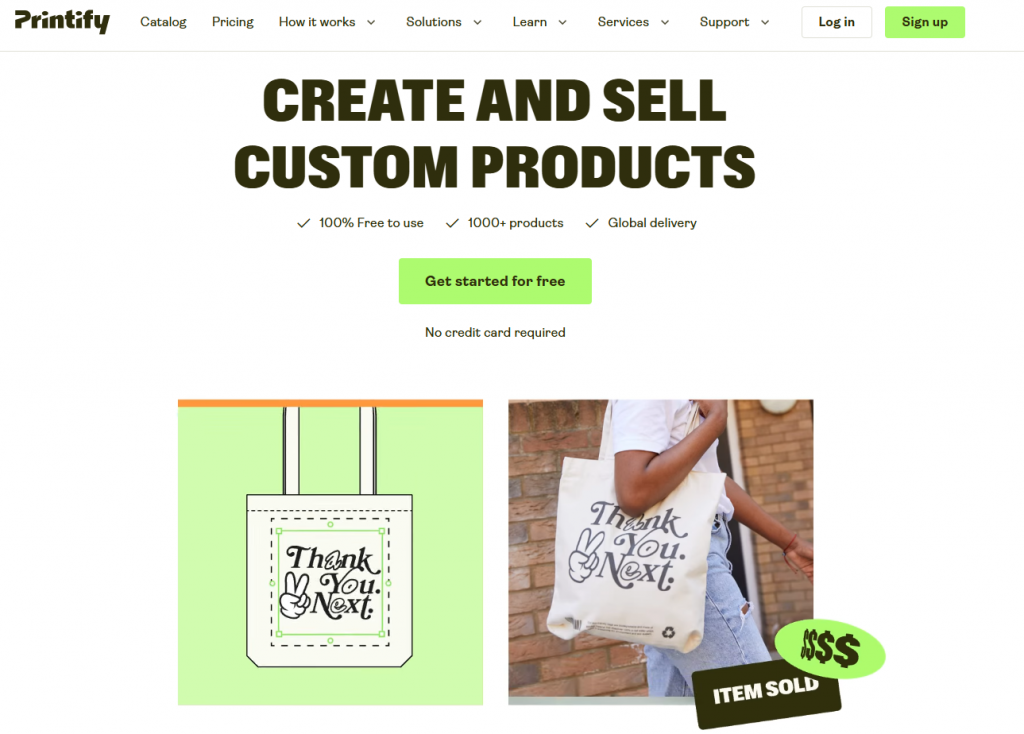
Printify is a leading print-on-demand platform that allows Shopify merchants to sell custom products without inventory, upfront costs, or production equipment. The app connects you with a global network of print providers who handle printing, packaging, and worldwide shipping. For entrepreneurs selling custom apparel, accessories, home decor, or promotional items, Printify eliminates traditional manufacturing barriers.
What sets Printify apart is its extensive product catalog of over 900 items and competitive pricing through multiple print providers. The platform includes a professional mockup generator that creates product visuals automatically, making it easy to launch products quickly. Printify also offers sample ordering at discounted rates so you can verify quality before listing products.
Printify works best for creative entrepreneurs, influencers, and brands wanting to sell custom merchandise without manufacturing complexity. The per-item costs vary by provider, but the ability to create unique branded items with zero inventory risk makes it an attractive option for testing new products.

Most merchants install apps because they seem helpful rather than because they solve a real problem. This leads to higher costs, slower stores, and disconnected workflows. The smarter approach is to build your app stack around measurable goals that fix real issues in time, revenue, or process efficiency.
Identify what slows your store down the most. Are customer queries overwhelming your inbox? Are abandoned carts increasing despite good traffic? Are marketing efforts scattered? Write down your top three issues and choose apps that address them directly. The best Shopify apps remove friction, not just add new features.
An app is only useful if it works smoothly with your current tools. Check whether it connects with your CRM, email system, and fulfilment software before installing. For example, YourGPT links directly with Shopify and uses your order and customer data to automate responses accurately. Good integrations save time and prevent duplicate work.
Free trials matter only if you test them with live data. Use recent orders, actual customer queries, and ongoing campaigns to see how the app performs. Track response times, conversion changes, and time saved. If an app does not show clear improvement, move on quickly.
Look beyond the subscription price. A $50 app that saves five hours a week or prevents missed sales is more valuable than several free tools that add work. Compare results against your current manual process. True ROI combines saved time, higher accuracy, and better customer experience.
Check how developers handle feedback and updates. Read recent reviews and see if they reply to questions or fix reported bugs. A responsive developer indicates reliability and ongoing product care. Test their support before subscribing by asking a simple technical question.
Begin with three to five essential apps that cover marketing, reviews, and support. Optimise these before adding more. Each new app adds complexity and requires upkeep, so expand gradually. A lean, connected stack performs better than a crowded one.
Most top stores use 7–10 well-chosen apps for email marketing, customer reviews, loyalty programs, support, and site optimization. Common picks include Klaviyo, Judge.me, and YourGPT, which appear often in high-performing stores.
Start with 3–5 apps that solve your biggest challenges. Add more only as your needs grow. Going beyond 10 to 12 apps can slow your store and make maintenance harder.
Some can. Apps that load heavy scripts or visual elements may reduce page speed. Check reviews for performance issues, test load times, and prefer “Built for Shopify” apps that follow speed standards.
Most quality apps offer free trials lasting 7 to 30 days or free plans with limited features. Test them in your live store before paying to see real-world results.
Measure results. Does it save time, boost conversions, or increase revenue? If it doesn’t show clear value within a month, it’s likely not the right fit.
Apps are usually faster and cheaper. They include updates, support, and tested functionality. Go for custom development only if you need something unique, complex, or at enterprise scale.
Many free apps are excellent for smaller stores. Judge.me and Privy, for example, have solid free plans. Paid apps usually offer more features, better support, and frequent updates. Choose based on your needs, not price alone.
Most apps let you export data and import it into the new one. Always back up your data, capture your settings, and test before uninstalling. Some developers even help with migration.
Yes, they often need access to orders or customer information. Install only trusted apps with good reputations and review the permissions they request. Apps listed on Shopify undergo security checks.
It stops working right away. Some leave code behind, so check your theme files and remove leftovers. Always export your data before uninstalling.
Running a Shopify store well is less about how many tools you use and more about how clearly they work together. The right setup feels simple, organised, and reliable. The best tools strengthen your business quietly in the background, helping you make decisions faster, reduce repetition, and give customers a smoother experience.
Do an honest audit of your stack.
Ask one question: what’s actually moving the needle? Faster fulfilment, better support, more reach, higher repeat purchases. Keep what drives results and remove what doesn’t.
YourGPT fits into this mindset. It automates daily support, sales and operations without changing how teams work. It learns from your data, manages customer conversations, and keeps information consistent across channels. For most stores, that kind of steady reliability matters more than another new integration or plugin.
A healthy app stack feels invisible. When technology stops demanding attention, your time shifts back to growth, products, and service. The goal is not to build a store full of tools but a business that runs smoothly because every piece earns its place.
Handle customer chats, orders, and product queries automatically while you focus on growing your business.
Free for 7 days · No credit card required
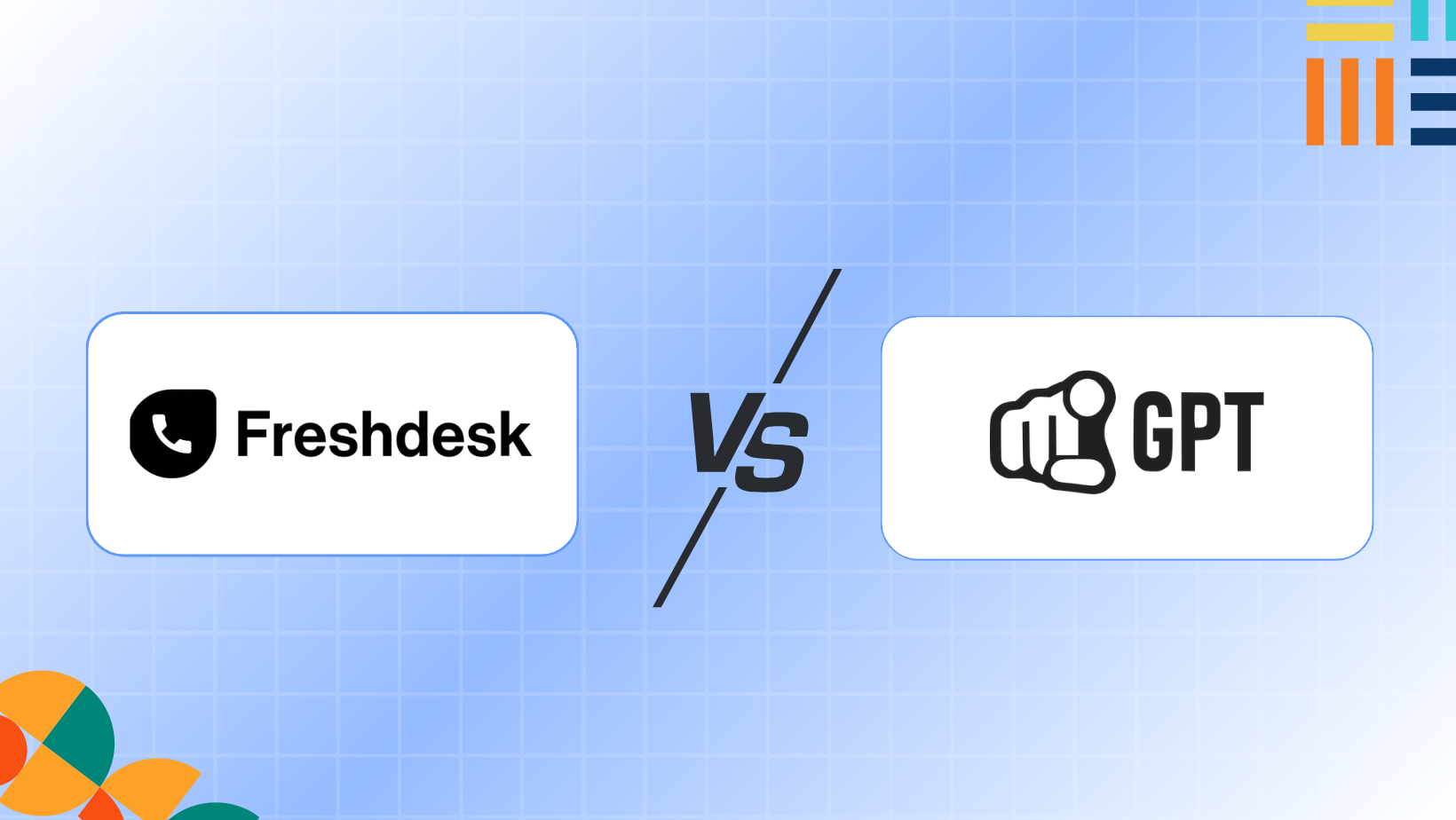
TL;DR: The Core Difference YourGPT Built around AI agents that handle conversations, run workflows, and resolve issues on their own across channels. The goal is to reduce incoming support volume by solving problems before they reach a human. Freshdesk Built around structured ticketing. It focuses on organizing queues, managing SLAs, and tracking agent performance. Humans […]


TLDR Zendesk works well for ticket-based support, but it can feel limiting as teams rely more on automation and multi-channel conversations. This guide compares 7 practical Zendesk alternatives that reduce manual handling and let AI manage common requests across chat and messaging tools Zendesk is one of the popular customer support platform has been around […]

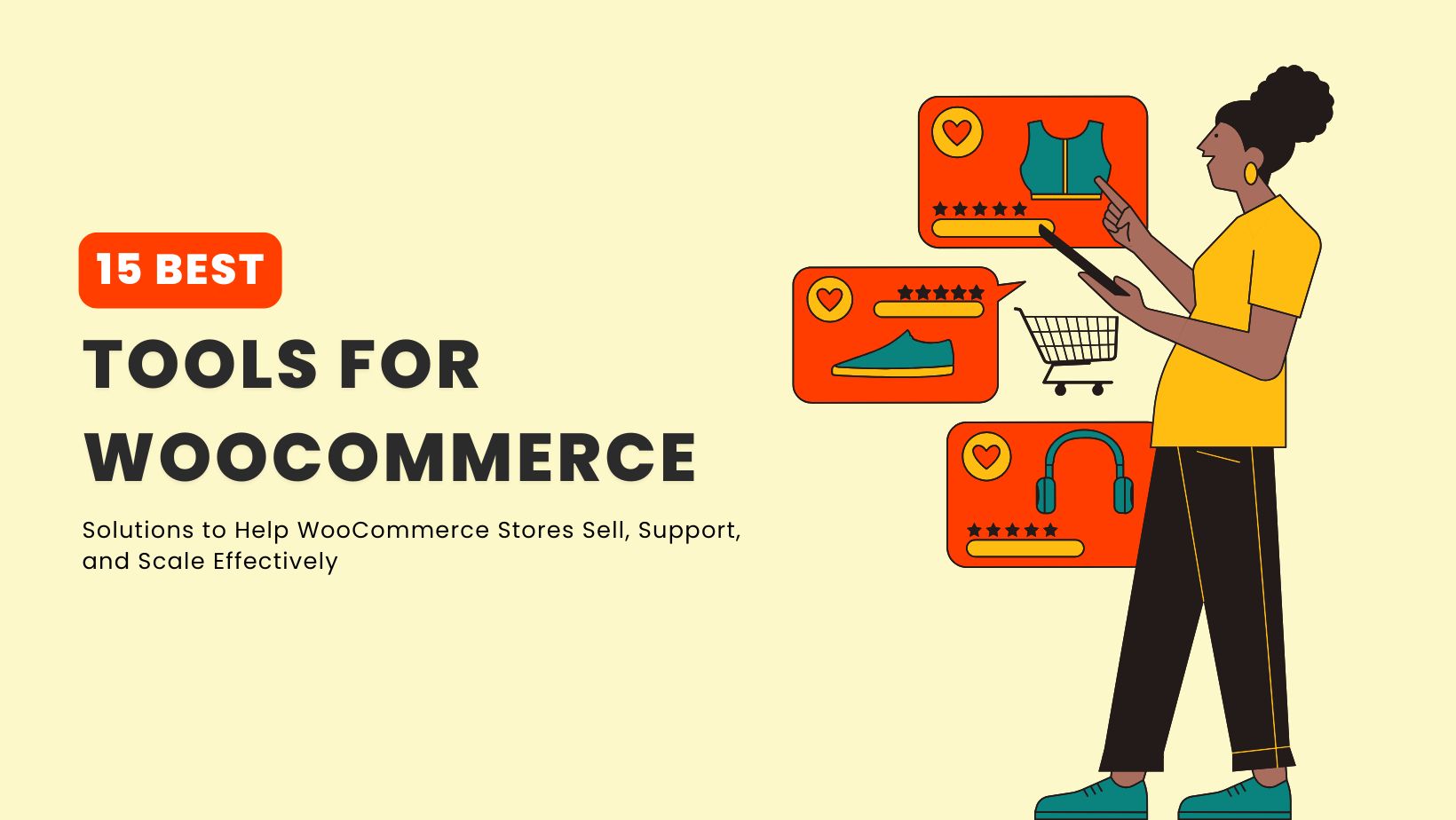
WooCommerce gives store owners flexibility, but that flexibility comes with trade-offs as a store grows. Over time, pages slow down as plugins accumulate, carts get abandoned without obvious reasons, and customer questions start consuming more time than expected. These issues rarely appear all at once, but they compound quickly and directly affect revenue. After working […]

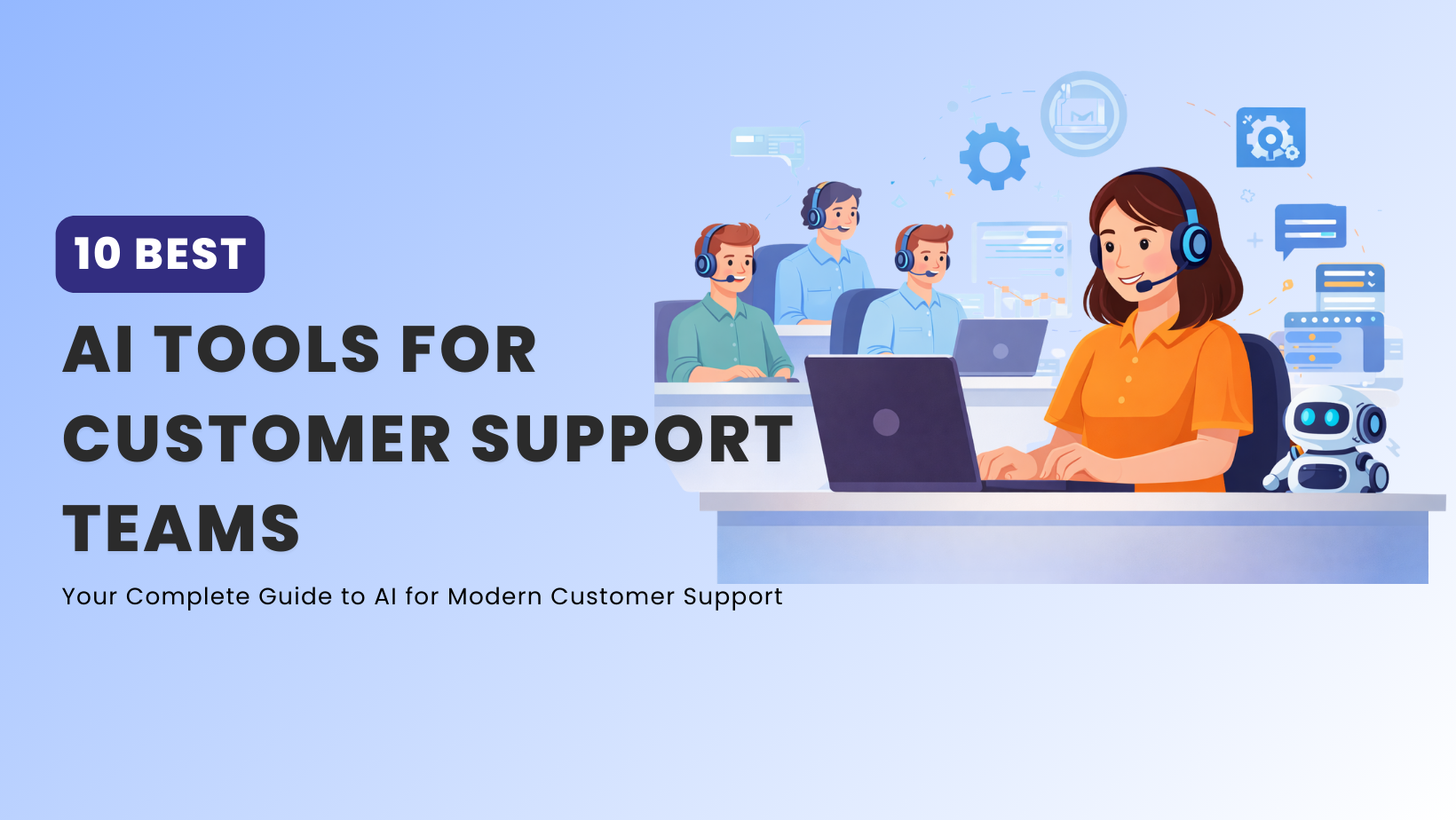
AI customer support tools now form a core part of how many teams handle growing contact volumes and rising customer expectations. At the same time, the market has become crowded, with many similar-looking products and overlapping claims, which makes evaluation harder for support leaders. The AI customer service segment grew from about $12 billion in […]

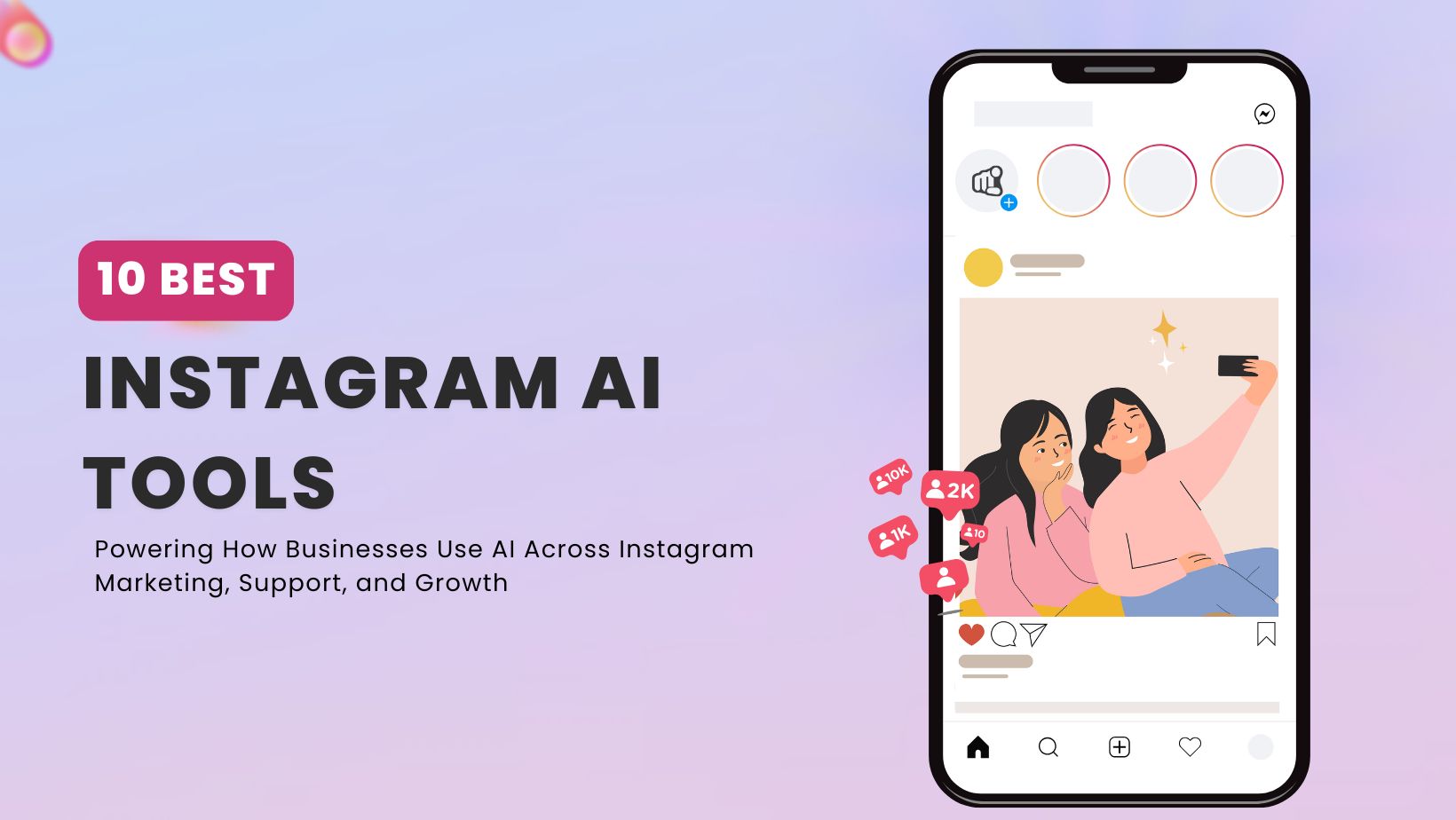
If you run an Instagram account for business in 2026, you already feel the pressure. The platform has 2 billion monthly users now. About 44% of people on Instagram shop every week, and most expect you to reply to their messages in under an hour. Between creating posts, Stories, and Reels, answering DMs, responding to […]

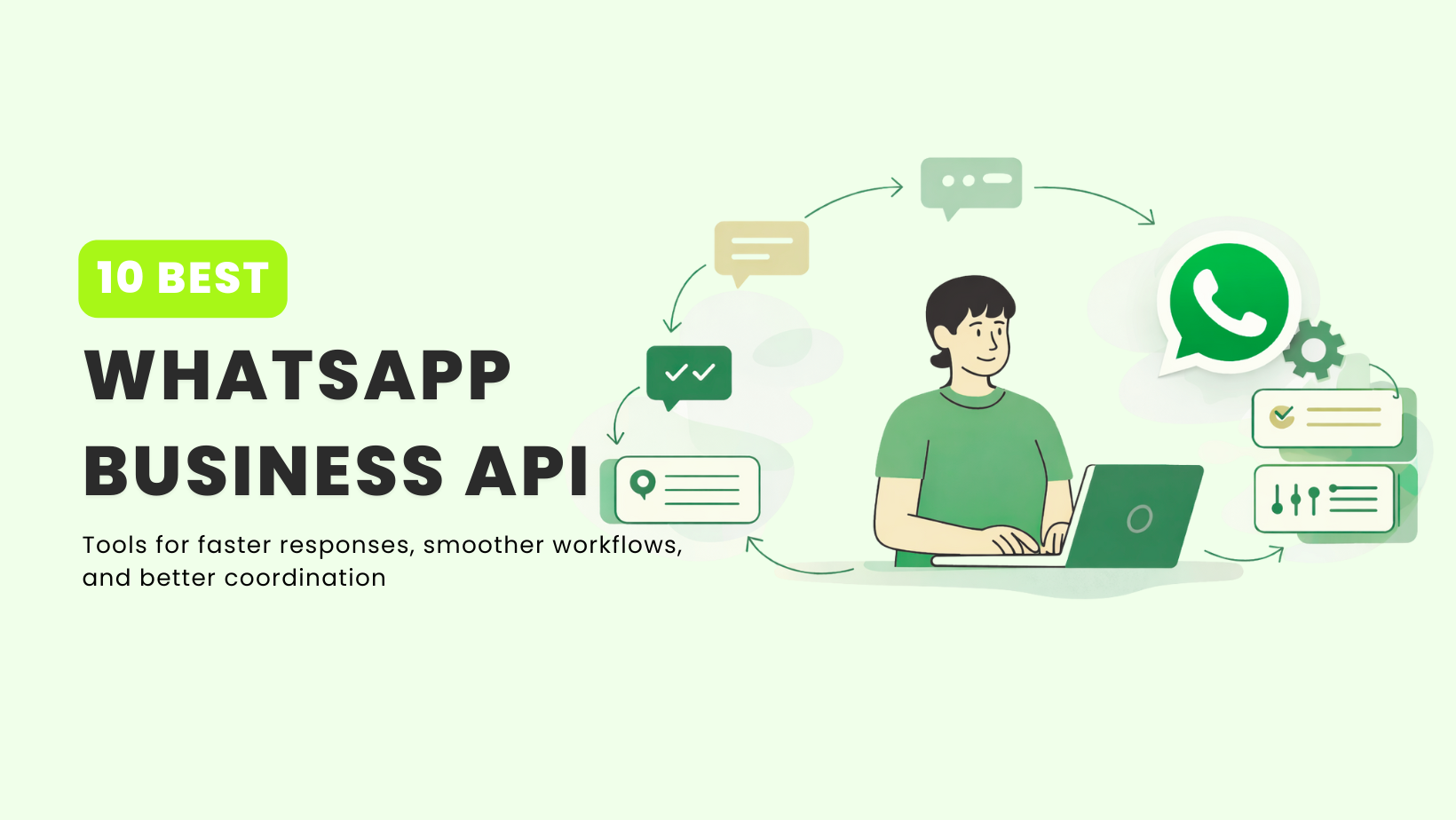
TL;DR As WhatsApp becomes a core business channel, teams outgrow the basic app and need API-based tools for scale. Platforms such as YourGPT, Respond.io, and Yellow.ai support advanced automation and multi-team workflows, while WATI fits smaller teams needing a simple shared inbox and light automation. WhatsApp has become one of the most important channels for […]
